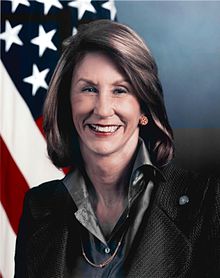
Obama-Castro handshake: What does it mean?
The now famous — or infamous depending on your point of view — handshake between Presidents Obama and Castro at Nelson Mandela’s memorial may simply fade into history, as did the Bill Clinton/Fidel Castro handshake, or it could become the symbol of a beginning. A beginning that with courage and trust on both sides could lead to normalization of U.S.-Cuban relations at least by the end of Obama’s term.

After a half century of enmity, a change in relations will depend on whether President Obama will lead this process and on whether Cuban Americans can forgive and seek reconciliation. Obama will have to explain not just why U.S. policy must change but why the politics of fear and vengeance have failed. And Cuban Americans will have to — as Mandela did — confront a cruel past by rising above it.
Obama can modify many of the embargo regulations, allowing for much greater trade and investment. He can remove Cuba from the terrorist list — long overdue given the security cooperation with Cuba at Guantánamo Base. Congress has a role to play, too, but significant progress can be made without any change in laws.
Critically, the silent Cubans Americans who want change must speak out. Although in the majority, they have allowed the Cuban-American Congressional delegation to condemn even a handshake, and threaten retaliation if the president dare consider reducing Cuba’s isolation.
In his eulogy Obama said, “Mandela showed us the power of action; of taking risk on behalf of our ideals.” Few U.S. presidents have believed that U.S. policy toward Cuba was anything more than domestic politics writ large. Clinton and Kennedy initially courted the Cuban-American hardline in order to win elections, but subsequently sought to improve relations.
During his first years in office, George W. Bush continued and even expanded Clinton’s “people-to-people” travel, and the elder Bush approved our participation in the Tripartite Agreements that resulted in 50,000 Cuban soldiers returning from Angola. Despite these minor risks to advance policy, no president has been willing to put ideals first.
Yet, now may be the time for change.
An improved relationship with Cuba would enhance cooperation to deter criminal and terrorist activities, encourage broader economic reform, and respect for human rights. And Cuban Americans, by following the example of Mandela — reaching out rather than punishing — would at long last have the chance of playing a role in Cuba’s future.
If Raúl Castro’s reforms are successful Cuban Americans will gain the most if the embargo is removed. Florida’s geographic proximity, cultural and family relations make it the natural source for goods, services and capital essential to rebuilding the Cuban economy. On the other hand, if Castro loses control of the process, Florida stands to lose the most. An unsettled Cuba could become a platform for the entry of terrorists, criminals and extremists into the United States — first stop Florida.
In our own hemisphere we would gain as well. We have every reason to imagine continued economic growth, improved democracies, and greater unity and understanding. Yet in this near perfect foreign-policy arena we remain at loggerheads with our neighbors because we have failed to resolve our differences with Cuba.
How then can we expect to be the prime mover in the complex affairs of the world, if we lack the courage here at home to redefine U.S.-Cuban relations?
Change is in the hands of the president — and Cuban Americans. In his eulogy Obama said, “Nelson Mandela reminds us that it always seems impossible until it is done.”
Ambassador Vicki Huddleston is a former chief of the U.S. Interests Section in Havana (1999-2002) and former deputy assistant secretary for Africa at State and at Defense. She is retired from government service.
(Translated by Progreso Weekly. From The Miami Herald)


